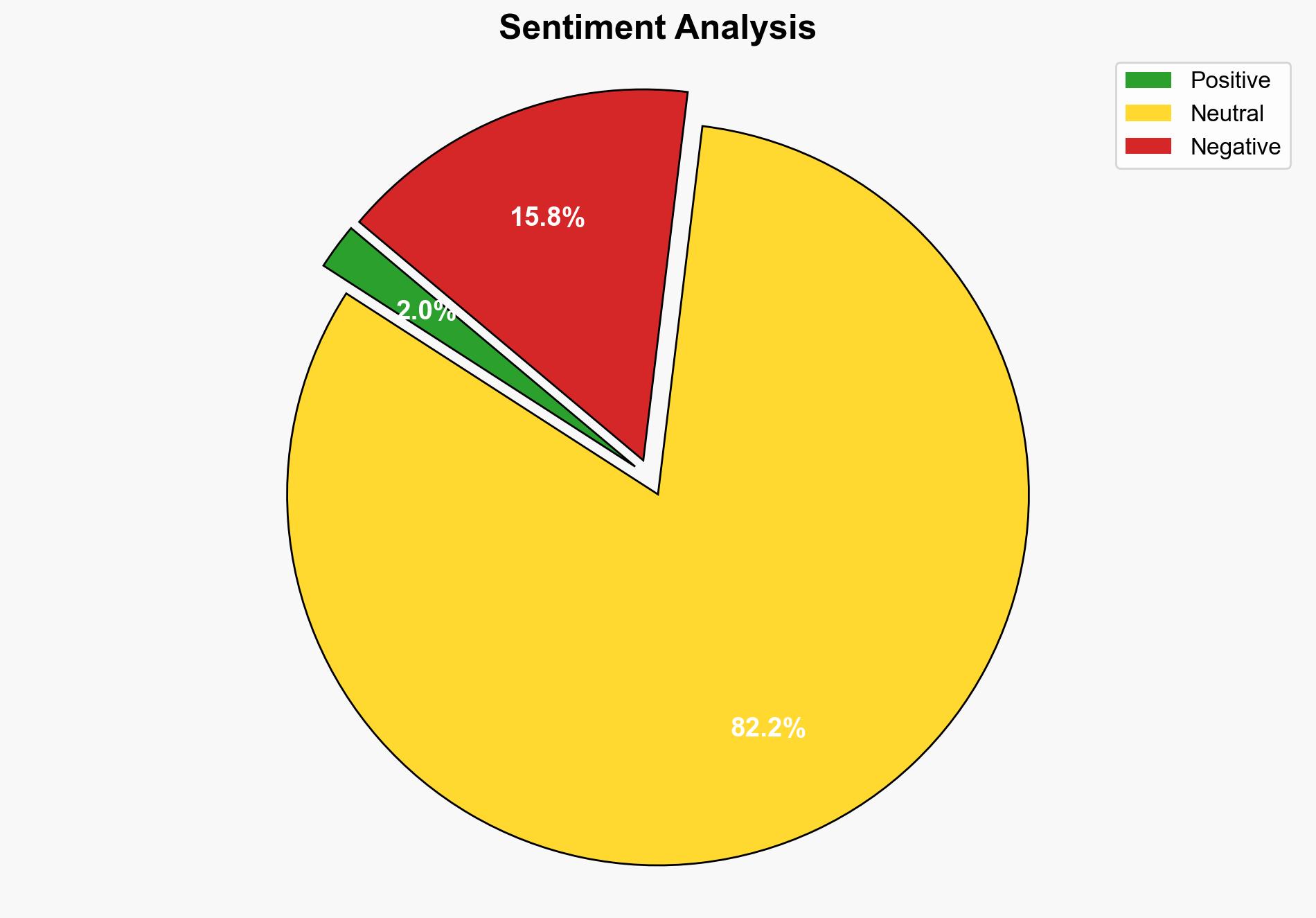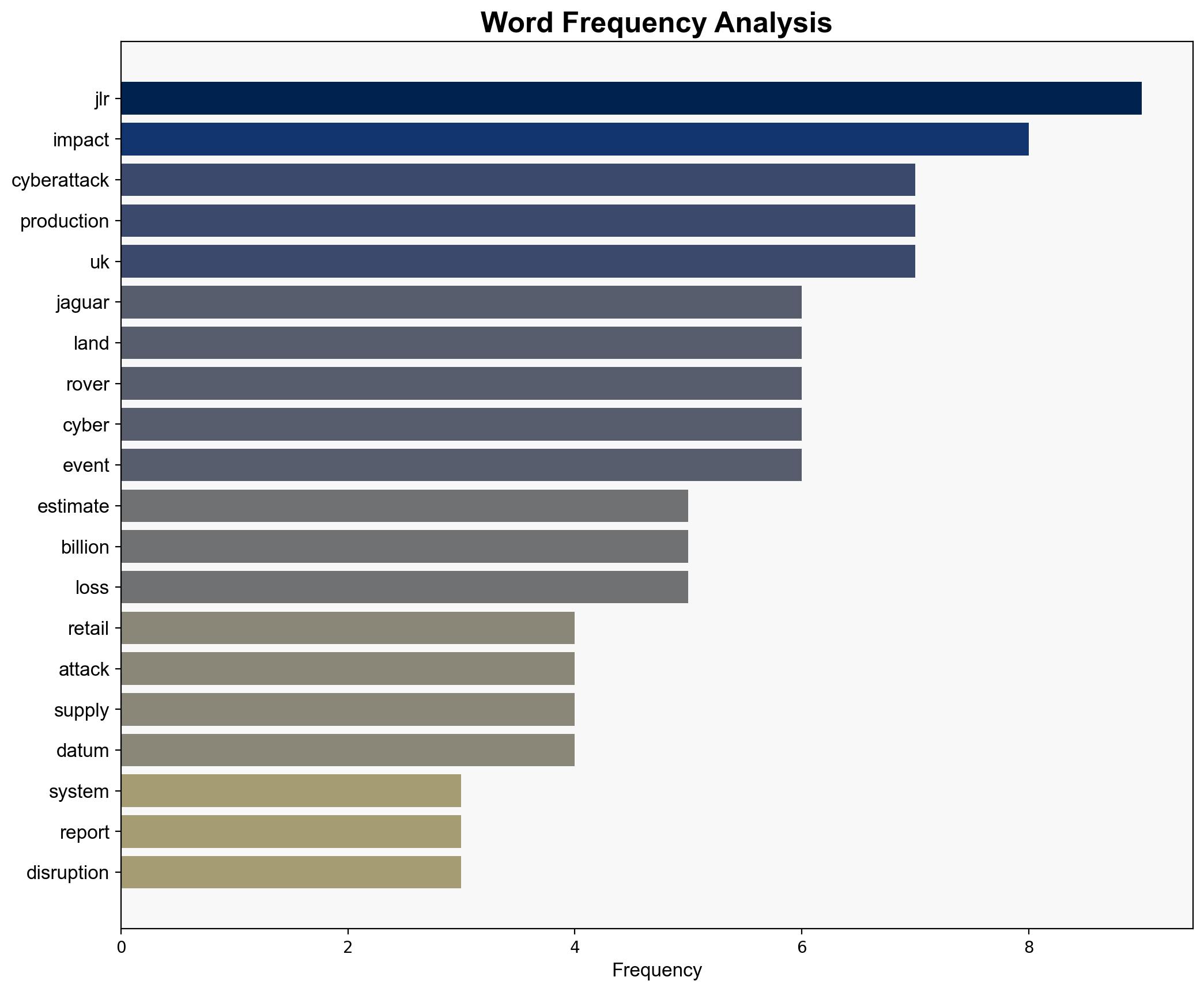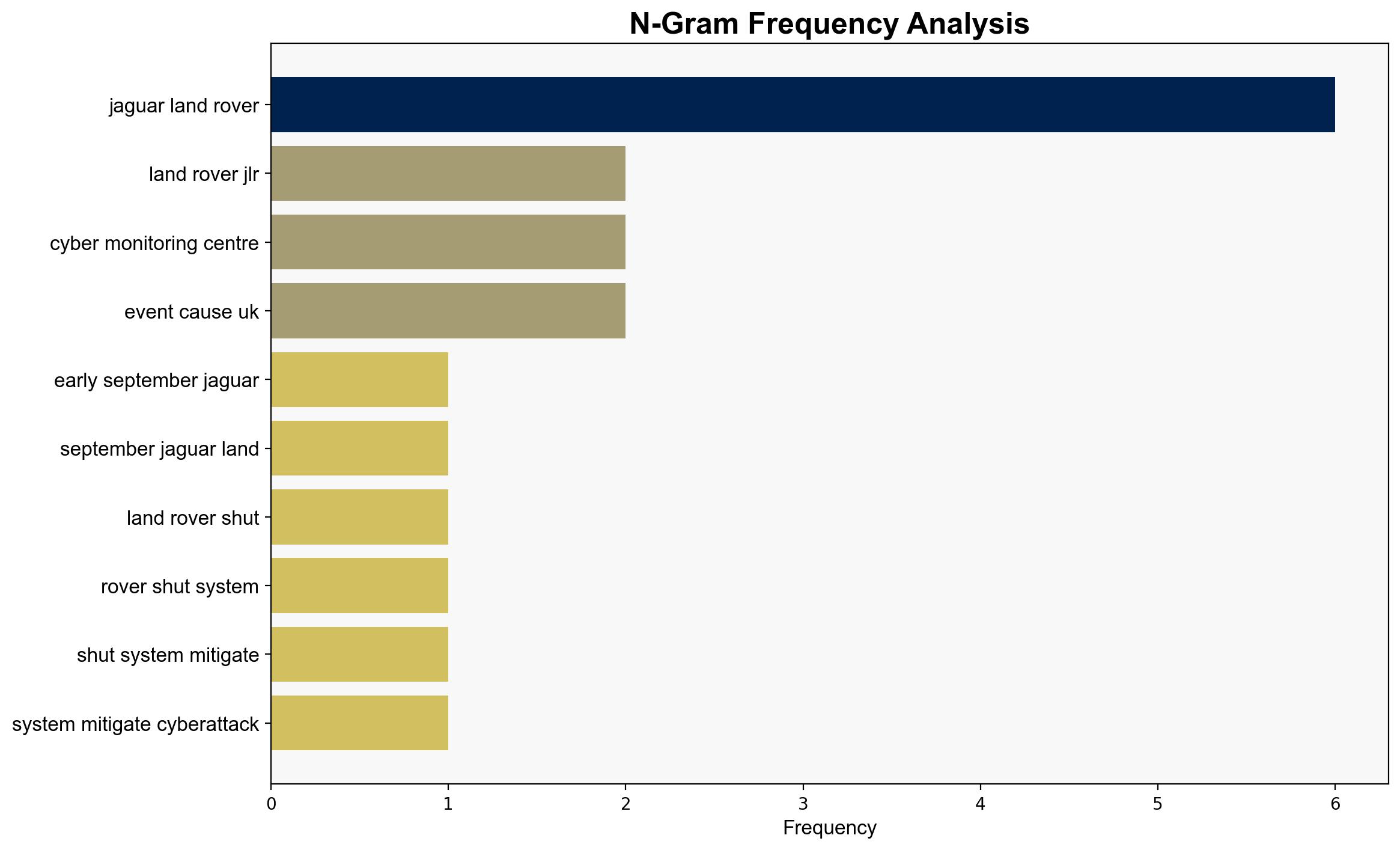Cyberattack on Jaguar Land Rover inflicts 25B loss on UK economy – Securityaffairs.com
Published on: 2025-10-23
Intelligence Report: Cyberattack on Jaguar Land Rover inflicts 25B loss on UK economy – Securityaffairs.com
1. BLUF (Bottom Line Up Front)
The cyberattack on Jaguar Land Rover (JLR) has caused significant economic disruption, estimated at £25 billion, impacting the UK economy. The most supported hypothesis is that the attack was part of a broader campaign targeting the UK automotive sector, potentially linked to geopolitical tensions. Confidence level: Moderate. Recommended action: Enhance cybersecurity measures across the automotive supply chain and engage in diplomatic channels to address potential state-sponsored threats.
2. Competing Hypotheses
1. **Hypothesis A**: The cyberattack on JLR was an isolated incident conducted by cybercriminals for financial gain, possibly linked to the group “Lapsus$” or similar entities.
2. **Hypothesis B**: The attack was part of a coordinated campaign targeting the UK automotive sector, possibly involving state-sponsored actors aiming to disrupt the economy and create strategic instability.
Using the Analysis of Competing Hypotheses (ACH) 2.0, Hypothesis B is better supported due to the scale of the attack, its systemic impact, and the lack of immediate financial gain for the attackers, suggesting motives beyond mere financial theft.
3. Key Assumptions and Red Flags
– **Assumptions**:
– The attackers had advanced capabilities to breach JLR’s systems.
– The economic impact estimates are accurate and reflect the true scale of disruption.
– **Red Flags**:
– Lack of detailed technical information about the breach.
– No confirmed attribution to a specific group or state actor.
– Potential underestimation of the attack’s long-term effects on the supply chain.
Cognitive bias may arise from assuming the attack’s motives without clear evidence, and there is a risk of confirmation bias if focusing solely on state-sponsored narratives.
4. Implications and Strategic Risks
The attack highlights vulnerabilities in the UK’s automotive sector, with potential cascading effects on the broader economy. If state-sponsored, this could escalate into a geopolitical issue, affecting international relations and trade. The psychological impact on consumer confidence and investor sentiment could further exacerbate economic instability. The incident underscores the need for robust cyber resilience strategies across critical industries.
5. Recommendations and Outlook
- Enhance cybersecurity protocols across the automotive supply chain, focusing on threat detection and incident response capabilities.
- Engage in diplomatic efforts to address potential state-sponsored cyber threats and strengthen international cooperation on cybersecurity.
- Scenario Projections:
- Best Case: Rapid recovery with improved cybersecurity measures, minimizing long-term economic impact.
- Worst Case: Continued cyberattacks leading to prolonged economic disruption and geopolitical tensions.
- Most Likely: Gradual recovery with increased focus on cyber resilience, but potential for further incidents if underlying vulnerabilities are not addressed.
6. Key Individuals and Entities
– Jaguar Land Rover (JLR)
– Lapsus$ (potentially involved group)
– Tata Motors (parent company of JLR)
– Cyber Monitoring Centre (CMC)
7. Thematic Tags
national security threats, cybersecurity, counter-terrorism, regional focus




